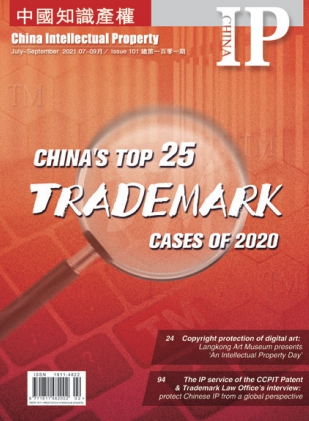
Docket No.: 326, second instance (终), civil case (民), (2020) Zhejiang Higher People's Court (浙)
Lower Court Docket No.: 1822, first instance (初), civil case (民), (2018) Ningbo Intermediate People's Court of Zhejiang Province (浙02)
SUMMARY OF THE ARGUMENT
China’s laws do not require that foreign trademarks must be translated into Chinese when parallel imported goods are sold. When selling imported goods, importers should keep original appearance of the goods as much as possible. If an importer attaches a self-translated Chinese logo that is inconsistent with the Chinese trademark registered and used by the right holder in China to the parallel imported goods, this will destroy the correspondence between the Chinese and English trademarks of the right holder, impair the efforts made by the right holder to improve the awareness of the Chinese trademark and expand the Chinese market, separate the corresponding relationship between the Chinese trademark and the goods of the right holder, damage the identifying function of the Chinese trademark, become the circumstance of “otherwise damaging the exclusive right to use registered trademark of others” pursuant to Paragraph 7, Article 57 of the Trademark Law, and thus constitute trademark infringement
STATEMENT OF THE CASE AND FACTS
ANHEUSER-BUSCH INBEV BREWING GROUP CHINA,
Plaintiff-Appellee
v.
XIAMEN GULONG IMPORT & EXPORT CO., LTD.,
Defendant-Appellant
Anheuser-Busch InBev Brewing Group China ("Anheuser-Busch InBev") is the licensee of “卡罗娜•爱科拉”“科罗娜”“Coronita Extra and picture” trademarks. When selling beer in China, it uses "科罗娜" Chinese trademark and "Coronita Extra and picture" English trademark at the same time. In 2018, Xiamen Gulong Import & Export Co., Ltd. ("Gulong") declared to the customs to import a batch of beer with "Coronita Extra and picture" and other trademarks on the beer bottles, and put "卡罗娜" on the customs declaration form, the inspection and quarantine certificate of entry goods and the Chinese label sample. As ascertained through trial, the imported batch of beer came from the same right holder of the trademark in dispute. Anheuser-Busch InBev asserted that Gulong's act infringed its trademark right, and resorted to Ningbo Intermediate People's Court of Zhejiang Province, requesting to order Gulong to stop the infringement act, to eliminate the impact thereof and to compensate for its economic losses and reasonable expenses in total of RMB 8.2 million.
Ningbo Intermediate People's Court held in trial: Gulong's importing of involved beer through legal channel constituted parallel import and did not constitute the infringement upon the trademark rights in dispute of Anheuser-Busch InBev. However, the use of "卡罗娜" in customs declaration and inspection and quarantine materials as Chinese name and mark affected the trademark use strategies of Anheuser-Busch InBev and the right holder, hindered Anheuser-Busch InBev's domination of trademark rights, and constituted trademark infringement. Therefore, the court ruled in the first instance: Gulong should immediately stop the use of "卡罗娜" mark in customs declaration and inspection and quarantine materials of the imported beer, and should compensate Anheuser-Busch InBev for economic losses (including reasonable expenses) in the amount of RMB 100,000.
Gulong refused to accept the first instance judgment and appealed to Zhejiang Higher People's Court.
The Higher People's Court of Zhejiang Province held in the second instance that the current laws and regulations of China had no mandatory provision that operators must translate foreign trademarks of imported goods into Chinese. The decision made by the court of first instance that "the use of the Chinese trademark in customs declaration and inspection declaration materials followed the rule that Gulong should comply with" was incorrect, and Gulong had no legal or justified reason to use the "卡罗娜" Chinese mark. By long-term operation in good faith and much promotional investment, Anheuser-Busch InBev has established close correspondence between the "科罗娜" Chinese trademark and the "Coronita Extra and picture" English trademark, both related to the same goods source. Now, Gulong is using the "卡罗娜" mark on the involved beer and on the customs declaration form and the inspection and quarantine certificate of entry goods. This destroys the correspondence between the "科罗娜" Chinese trademark and the "Coronita Extra and picture" English trademark, separates the corresponding relationship between the "科罗娜" Chinese trademark and the goods, impairs the efforts made by Anheuser-Busch InBev to improve the awareness of the "科罗娜" trademark and expand the Chinese market, becomes the circumstance of "otherwise damaging the exclusive right to use registered trademark of others" pursuant to Paragraph 7, Article 57 of the Trademark Law, and thus infringes the exclusive right to use the trademark in dispute.
Therefore, the court ruled in the second instance to dismiss the appeal and upheld the original judgment.
ANALYSIS
With the globalization and liberalization in trading, parallel import has become an increasingly common trade mode. In business practice, as relevant administrations and importers have different understandings on how to use Chinese labels on parallel imported goods, there is chaos in translating and creating Chinese trademarks at will, leading to various lawsuits.
This case provides constructive exploration into deciding the transliterate trademarks of parallel imported goods, makes clear that if an importer arbitrarily translates a mark that is inconsistent with the Chinese trademark of the right holder, this constitutes trademark infringement act, and also advocates that even if Chinese labels need to be affixed, the original foreign trademark marked on imported goods should be used as much as possible, for balanced protection of right holders, importers and consumers.
|
Copyright © 2003-2018 China Intellectual Property Magazine,All rights Reserved . www.chinaipmagazine.com 京ICP备09051062号 |
|
|



